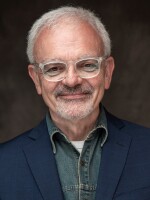STEVE INSKEEP, host:
The winner of this year's election will likely be dealing with two issues the current president is discussing today. President Bush met with Germany's chancellor in Europe, and they talked about Iran as well as a changing climate. NPR White House correspondent Don Gonyea is traveling with the president. And let's start with Iran and the concern over nuclear weapons there. Does that count as the president's top priority as he finishes his term?
DON GONYEA: It's his top priority as he finishes the term, safe to say - certainly his top priority as he makes his way across Europe in what is his last trip to this continent as president, he's quick to tell us. But he is really taking a hard line toward Iran, in much the same way that we have heard him over the past couple of years. There were some signs yesterday, Steve, that he was focusing maybe a bit more on diplomacy, that he was reaching out to these European leaders trying to figure out ways to bring them onboard.
Some of us noted - me among them - that at a press conference yesterday with European Union leaders, when asked about Iran, the president did not say something he has always said when talking about Iran, that all options are on the table in dealing with the Iranians. It made some of us think that perhaps he has taken the military option off the table. Well, guess what. He was asked about Iran today, and he said not once but twice that all options are on the table. So if there was a slight easing of the rhetoric yesterday, it was back in place today.
INSKEEP: But now wait a minute. One of the questions here is whether the U.S. and Europe can agree on how to handle Iran. Is Germany saying that all options are on the table?
GONYEA: We did not hear that from the German chancellor, Angela Merkel, today. What the European leaders are saying is that Europe does need to demonstrate to Iran that they take this very seriously, that they do not want Iran to be a nuclear power. Still, there's a big gulf between what the U.S. has been saying and what Mr. Bush has, some say, been threatening and what the Europeans are saying.
But what we are hearing from Germany and from across Europe is that tougher sanctions are indeed something that they really do need to lay on Iran if Iran doesn't take a new opportunity here for transparency and to stop enriching uranium.
So we are getting more serious talk out of the Europeans but again, it's still very much focused on letting the work of diplomacy play out and making it tougher for Iran to do business around the world.
INSKEEP: So we've got this issue where both sides are theoretically on the same page, but the U.S. is seen as caring a lot more - Iran. And then there's this other issue where maybe the opposite is seen to be the case - global warming - where the Europeans are seen to care a lot more than the administration. That's the perception, anyway. Does President Bush have an agreement with Angela Merkel of Germany about what to do about global warming?
GONYEA: He does not. They have some disagreements, but he has a great deal of respect for Angela Merkel. She is probably his closest friend in Europe. She is pushing this issue very hard. She seems to have his ear. They both say it's important to get some sort of an agreement soon. Today, President Bush even said it's important that we have actual, you know, specific numbers and targets for reduction. They have to be firm. But how to get there remains very problematic, despite the positive words from each.
INSKEEP: Don, thanks very much.
GONYEA: All right, it's a pleasure.
INSKEEP: That's NPR's Don Gonyea. He's in Berlin, where President Bush met with Germany's chancellor, Angela Merkel. Transcript provided by NPR, Copyright NPR.







